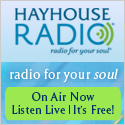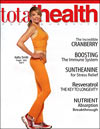Continuity
(Typing very softly, so as not to disturb those in deep meditation. . .)
Greetings to all the participants in the 21-day global Usui Virtual Retreat. I hope you're enjoying your own daily personal Reiki practice even more than usual during the retreat -- I know I am. Many thanks to virtual retreat founder Mari Hall for starting and keeping the retreat going for the past 13 years, and to this year's host, Pamela Miles, for the lovely meditations and guidance she's provided to enhance the experience for us, as well as the discussion forum available on her blog. And thanks, Pamela, for inviting me to contribute a guest post!
This week as we focus on the topic of "Reiki as a Healing Practice," my own emphasis is on the foundation: personal practice, or self-care. To me, that is the most important component of the system of Reiki. Our personal practice helps keep us grounded and balanced, and that is what makes it possible for us to help others. Yet I find that many practitioners have difficulty establishing and maintaining a daily personal practice. They say they can't find a way to work a regular self-care session into their busy (and irregular) schedules, or they're so focused on taking care of others that the idea of taking a few minutes for themselves feels unfamiliar, even uncomfortable.
Frankly, I think that tendency to put ourselves at the bottom of our priority lists is more likely to be the reason: many people who learn Reiki are already caregiver types, whether by personality, circumstances, or both. Yes, it does seem that life gets more hectic and unpredictable all the time, but that's all the more reason to maintain a regular personal practice.
I was fortunate that when I first studied Reiki, my teacher, Margaret Ann Case, made a point of recommending that we take what we'd learned in that first weekend class and put it into practice regularly for 21 days straight. I've since heard different takes on whether Usui himself specified 21 days, but that was the length of his own legendary retreat on Mt. Kurama, and whether or not he recommended that specific time period to students, the fact is that it works. Do anything for 21 days in a row, and it becomes a habit.
But it's not just me saying that daily personal practice is important: Mikao Usui made it clear as well in his preface to the Reiki precepts. Here's Hyakuten Inamoto's translation of that:
"Do gasshô every morning and evening
Keep in your mind and recite."
I am not qualified to translate from Japanese into English, so this is just my own speculation, but I like to think that Usui meant not only that we should practice morning and evening, but from morning to evening -- that is to say, all day long. Whether that's what he meant or not, however, that's what works for me.
I begin and end my days with personal practice, but I find opportunities all during the day to work in a moment or two here and there. I think of it as something I once did when I worked in radio: continuity.
In radio broadcasting, the worst thing that can happen is silence, or as they say in the trade, "dead air." Listeners have no way of knowing if a station is broadcasting "dead air" or if they've lost the signal. So a lot of attention is paid to what they call continuity: making sure that all the little components such as station identification, jingles, ads, announcements, are smoothly interwoven with the rest of the programming. When I studied radio drama many years ago, I got to choose to work with any part of the production I wanted. I chose continuity, and that meant that while other students were focused only on their specific part of the program, my specialty was all the little connecting parts, so I had to -- and got to -- pay attention to the whole production.
I use the concept of continuity in my daily Reiki practice by trying to avoid any "dead air" in my day. If I'm riding the bus or the subway, doing the laundry, standing in line or walking down the street, I'm also practicing Reiki. Sometimes I have the privacy and luxury of a little hands-on self-care, but more often I just focus on my breathing and remind myself of the precepts while I'm going about my business. I doubt anyone ever notices -- except me. I notice because I can see, and feel, how much it helps me get through the day.
And if I'm having a particularly difficult day, or if I just can't seem to focus on the task at hand, I find that if I take a few moments away from my work for an impromptu personal practice session, I return to my task in better shape and I'm able to get much more done than if I had kept slogging through without a break.
By the time I get to my evening practice session, I don't feel like I'm getting back into what we practitioners sometimes call "the Reiki space." I feel like I've been there all along.
So if it seems like there's no room in your crammed schedule for regular Reiki practice, look again. Look at all those little spaces in between, and take advantage of them, even if you only have time for a breath or two. Hawayo Takata is said to have told her students, "A little Reiki is better than no Reiki." To that I would add, "A little Reiki, and then a little Reiki, and then a little more Reiki, throughout the day, is better still."
































1 Comments:
Hi Janet,Your Article is really very informative,and at same time encouraging for fellow Reiki practitioners to keep on doing Reiki to themselves even in the midst of heavy calls of daily life's duties.Vish
Post a Comment
<< Home